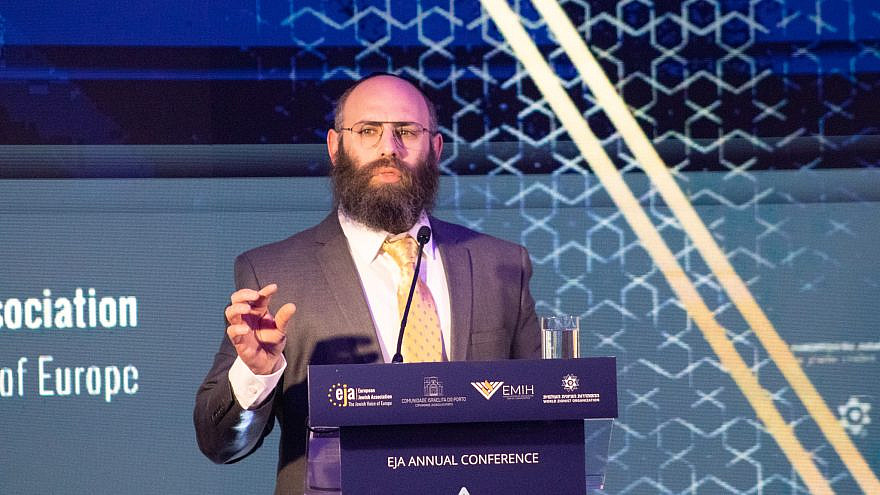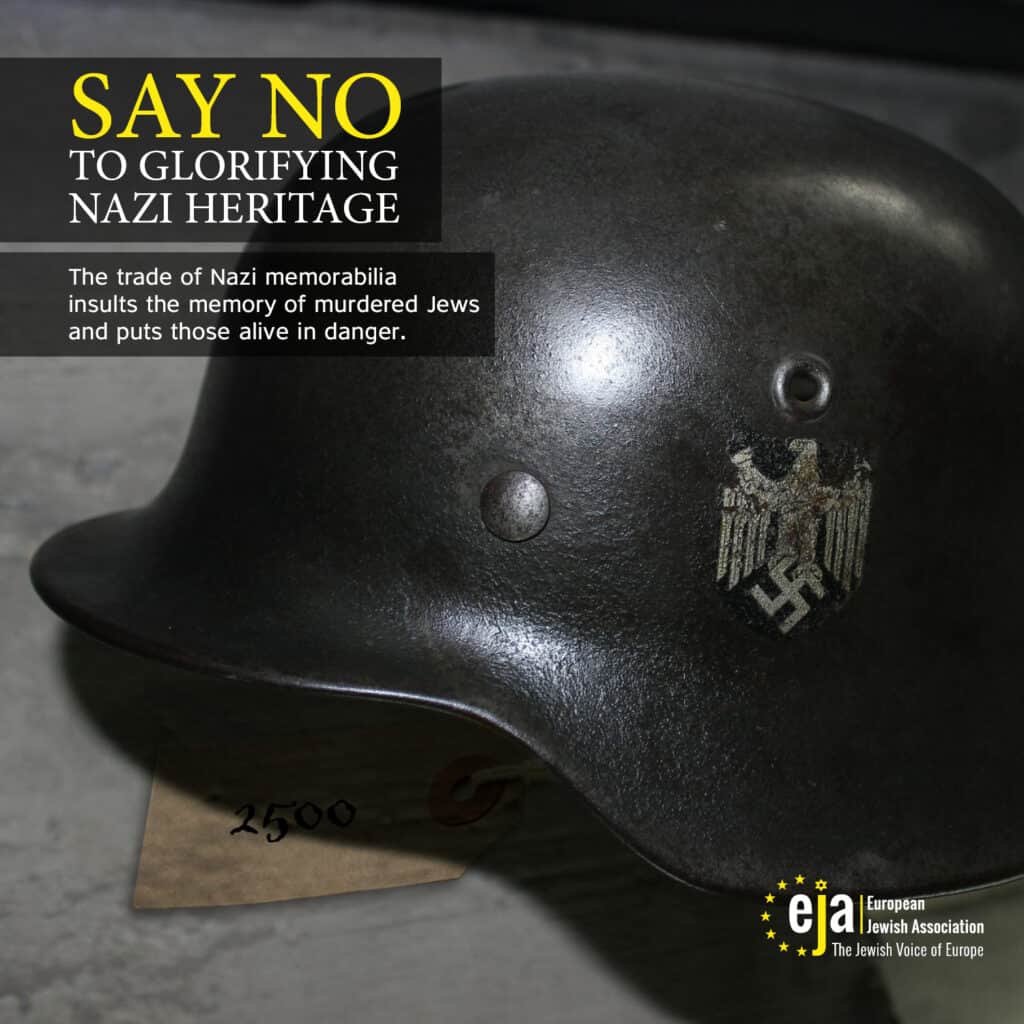
(May 15, 2023 / JNS) Jews from across Europe gathered to address the continent’s growing antisemitism problem at the European Jewish Association’s annual conference in Porto, Portugal, on Monday.
“We are one community undivided by borders. When we speak with one voice, we are stronger together,” said EJA Chairman Rabbi Menachem Margolin.
“As we meet, governments across Europe are coming forward with plans affecting Jewish life in Europe. We must ask ourselves what kind of future we want to see. And what part all of us can do to make that vision a reality,” Margolin added.
The two-day conference, “Shaping the Future of European Jewry Together,” includes panel discussions on various countries’ national plans for combating antisemitism, the challenge of fighting online hate, and a new campus leadership program sponsored by EJA.
“Antisemitism is on the rise and unfortunately, Jewish institutions across the continent are required to invest more and more in security,” said European Commission Vice President Margaritis Schinas.
“The data show that approximately 38% of the Jews in Europe are considering leaving Europe because they feel unsafe. This is a shame and it’s the responsibility of every government in the E.U. to protect its Jewish citizens,” he said, adding that 19 E.U. governments have released national action plans to combat antisemitism.
Reject “intersectionality”
The conference proposed a motion calling for antisemitism to be separated from other forms of hate and urging other Jewish groups to reject “intersectionality,” a theoretical framework that separates groups into “oppressed” and “privileged.”
“Antisemitism is unique and must be treated as such,” according to the motion, which notes that unlike other hatreds, it is “state-sanctioned in many countries,” “given cover by the United Nations” and denied to be racism by other groups targeted by hatred.
“There is little to no solidarity or empathy towards Jewish communities from other groups affected by hate when antisemitic atrocities occur or when Israelis are murdered in terrorist acts,” the motion notes.
“As years go by after the Holocaust, some social and political movements in Europe may want to forget it and say that antisemitism is just another kind of hatred, nothing unique about it. This is a dangerous attitude for the future of the Jewish community in Europe,” said Rabbi Slomó Köves, president of EMIH (The Association of Hungarian Jewish Communities).
“Antisemitism … requires separate attention and action from other forms of prejudice. While we stand in solidarity with all those who fight against hate, we cannot allow our struggle against antisemitism to be subsumed within broader ‘intersectional’ movements that fail to acknowledge the unique and specific nature of anti-Jewish bias or reject our connection to Zionism,” he said.
Gabriel Senderowicz, president of the Jewish Community of Oporto, said, “Many European governments confuse Jewish life with Jewish heritage. They think of Judaism as ancient houses that have been rehabilitated and some municipal museums that open on Shabbat.
“I am honored to be president of a community that has synagogues that respect traditional Judaism, that has kosher restaurants, films of history, a Jewish museum closed on Shabbat, and a Holocaust Museum that welcomes 50,000 children a year and teaches them that the aim of the Final Solution was to exterminate the Jews and not minorities in general,” Senderowicz said.
Amichai Chikli, Israel’s minister of Diaspora affairs and combating antisemitism, said in a video message that Israel’s government is troubled by trends in Europe, citing the plan of the European Students Union to “embrace the BDS movement.” He noted that the move would make life difficult for Jewish students on European campuses.
“Against these threats and many more, we will have to work together, determined and wisely,” Chikli said.
https://www.jns.org/rising-antisemitism-focus-at-european-jewish-association-conference/














